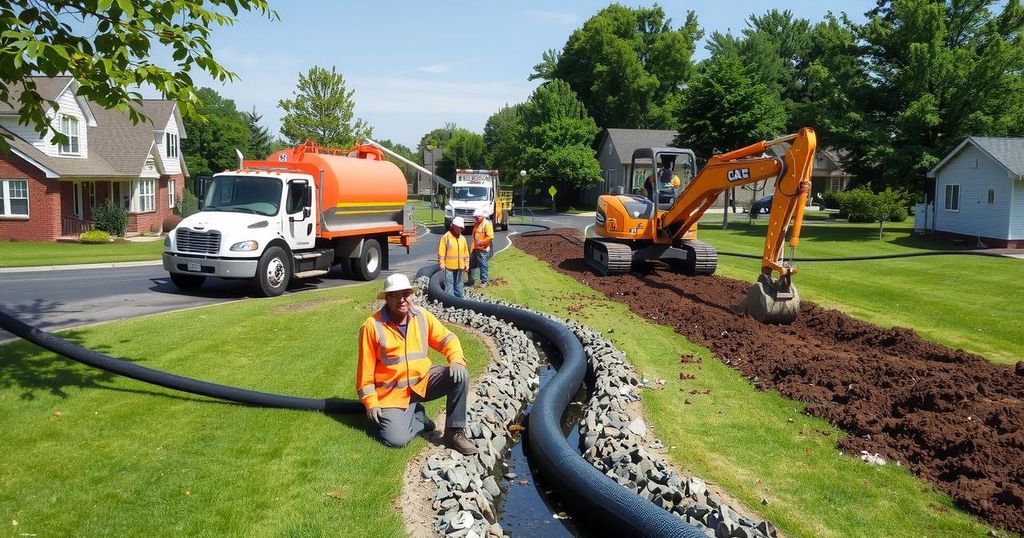As the rainy season approaches, Senegal intensifies flood prevention measures through a campaign led by the National Office of Sanitation to dredge water channels. Community involvement is crucial as officials stress cooperation to mitigate flooding risk, especially in densely populated Dakar. The government has been pursuing strategies since 2012 to improve drainage systems and has seen successes in reducing flood impacts.
As the rainy season draws near in West Africa, Senegal is ramping up its efforts to combat urban flooding. The National Office of Sanitation (ONAS) has initiated a special campaign aimed at dredging and draining water channels across Dakar and other parts of the country. This coordinated action involves not just government agencies, but also local authorities and community members, as they all work together to mitigate the impact of heavy rains that typically start in late June and persist until October.
Dakar, which stands as Senegal’s most populated area, is notably vulnerable to flooding during this season. Data highlights that the risk begins in early July, remaining high until mid-October. In one suburban neighborhood, Guediawaye, workers are actively engaged in clearing out drainage ditches, using a combination of shovels, suction trucks, and excavators. They focus on removing debris that could obstruct proper water flow, striving to prevent the kind of flooding that has caused difficulties in past years.
Djibril Samb, who works for ONAS and is overseeing the field operations, shared details about the campaign. “We have deployed technical personnel and heavy machinery, including water pumping vehicles, to fully clean blocked drainage pipes, reservoirs, and culverts,” he noted. This intensive work reflects the urgency of the situation as citizens prepare for the wet months.
During the campaign’s launch, Minister of Water and Sanitation Cheikh Tidiane Dieye stressed the importance of community involvement. He pointed out that despite government investments in flood management, public cooperation is crucial. Dieye urged residents not to litter and to refrain from obstructing drainage systems, as well as to take an active part in local cleaning efforts.
Since 2012, Senegal has been actively pursuing the National Flood Management Plan, aimed at enhancing the nation’s capacity to respond to floods. This initiative includes developing stormwater drainage infrastructure, which has proven effective in reducing flooding across several regions.
Astou Mbengue, who heads data collection at the Senegalese Federation of Residents’ Associations, pointed out that the government should prioritize further development of urban drainage systems. She also advocates for involving citizens in the phases of project design and construction. Involving the community could create a more sustainable approach to infrastructure management and maintenance, potentially providing long-term solutions to flooding issues.
In summary, Senegal is proactively addressing potential flooding through a coordinated campaign involving multiple stakeholders. Significant efforts are underway to clean and maintain drainage systems in advance of the rainy season. Public involvement is being emphasized as essential for long-term success. Through initiatives like the National Flood Management Plan, there’s hope that the country can enhance its resilience against serious flooding in the future.
Original Source: english.news.cn






